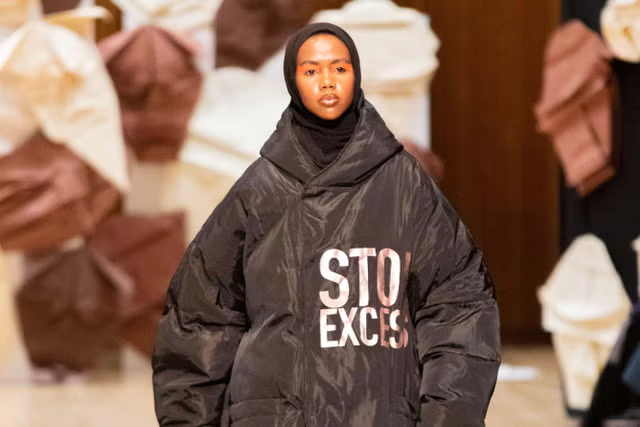
A new report conducted by the Collective Fashion Justice has revealed that less than 4% of British Fashion Council member brands have any emissions reduction targets.
Designers such as Victoria Beckham, JW Anderson and Richard Quinn are among those with no climate targets. It was revealed that the Princess of Wales’ go-to dress designer, Roksanda, also lacks any published environmental targets.
The fashion industry is responsible for as much as 12 percent of total greenhouse gas emissions. With many British fashion brands promising to implement actions in order to achieve the net-zero emissions goal by 2050, the report reveals how much there is still left to be done.
“There are key solution areas that are yet to be adequately addressed by the British fashion industry,” writes the report, “38% of industry greenhouse gas emissions are tied to irresponsible raw material production, particularly those derived from ruminant animals and fossil fuels.”
It’s no secret that luxury in fashion has long been equated with real leather, fur and cashmere. Animal rights activists have shed light on the horrors of using these animal-derived materials – but the environmental repercussions are often ignored.
“The rearing of animals for both food and fashion is the leading driver of anthropogenic methane (32%) and responsible for 16.5% of total greenhouse gas emissions,” the report states.
“Plant-based alternatives have far reduced impacts, for example, MIRUM material which functions similarly to leather has a carbon equivalent footprint about 52 times smaller than conventional cow skin leather, per kilogram.”
Degrowth
The dreams of many small and independent fashion brands is to grow and become global, and London Fashion Week is an excellent platform for small budding designers to spring from.
